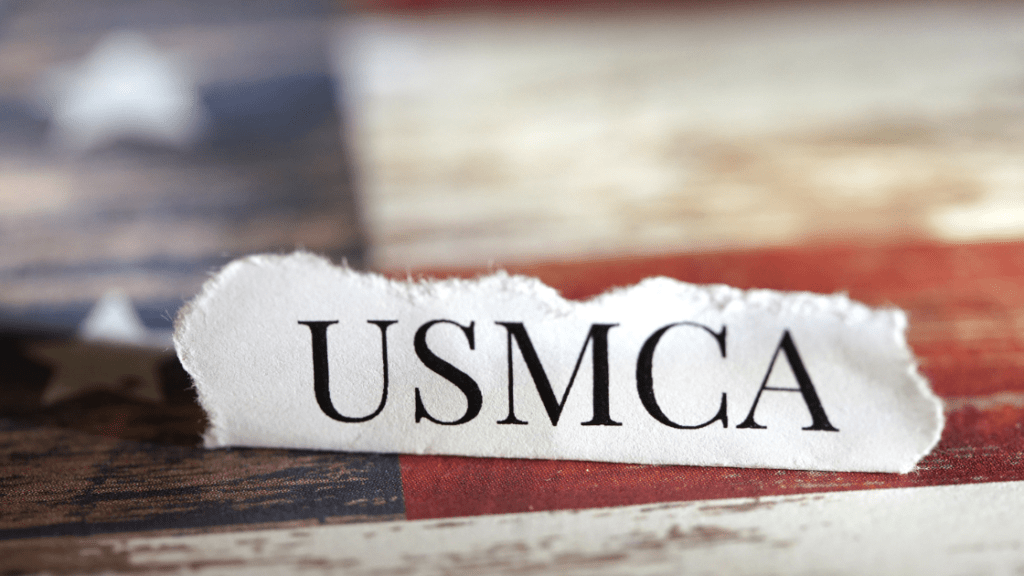USMCA Tribunal’s Final Ruling Will Benefit China Manufacturing
WASHINGTON — The Coalition for a Prosperous America (CPA) today urged the Biden administration to reject, and refuse to honor, the final decision from the U.S.-Mexico-Canada Agreement (USMCA) Panel that weakens USMCA’s automotive rules of origin. The regional content rules were a major change from NAFTA intended to boost domestic manufacturing in the U.S. auto sector and reverse Asian dominance. The Office of the U.S. Trade Representative rightly (USTR) criticized the “disappointing decision” and said it “could result in less North American content in automobiles, less investment across the region, and fewer jobs.”
Today’s decision by international bureaucrats on the USMCA Panel—at the direction of Canada and Mexico—changes the terms of USMCA and undermines the rules of origin. This will reduce the amount of regional auto parts content in North American cars by up to 33%, and directly benefit China and producers in other Asian nations.
“The primary goal of renegotiating NAFTA was to reshore industry, including automotive supply chains, back to the United States and North America. The agreed upon regional content rules were the centerpiece of the automotive sector provisions, and a major reason why the Trump administration and Congress approved the deal. But now, unelected bureaucrats on the USMCA panel have dramatically changed the terms of the agreement originally approved by Congress,” said Michael Stumo, CEO of CPA. “Complying with the ruling will be a windfall for China and other Asian auto parts manufacturers, increasing their North American sales by granting zero tariff treatment to large amounts of Chinese content. The decision facing the Biden administration is clear: the United States should reject the ruling, and continue granting zero tariff status in accordance with the original understanding of the USMCA auto content rules.”
CPA also called on the Biden administration to notify Mexico and Canada that restoring the regional automotive content rules will be the top agenda item when the USMCA is renegotiated during the six year renewal period.
“This decision is yet another reason that the U.S. should not outsource our trade and economic policy through trade agreements,” continued Stumo. “WTO tribunals and USMCA panels alter the deal. The U.S. should set trade policy through domestic tariff and customs laws. The rest of the world must comply as a condition of access to our markets.”
Background
Prior to USMCA, NAFTA’s loose rules around automobiles meant that vehicles assembled in North America with large amounts of overseas content could still count as “North American” and receive a zero percent tariff when imported into the United States. As a result, overseas producers captured a significant share of the auto parts supply chain in recent decades.
To limit this, USMCA added several new rules. These included a labor value rule requiring production wage rates of at least $16/hour, a rule that 70 percent of the steel and aluminum used by car manufacturers be sourced in North America, and a rule that seven core vehicle parts—the engine, transmission, body and chassis, axle, suspension system, steering system and where applicable, the advanced battery—also meet North American content requirements.
These new rules were due to go into effect on July 1, 2025.
USTR warned the USMCA Panel that Mexico and Canada were seeking to turn the core parts requirement “into a loophole that instead reduces the amount of required regional content by as much as thirty-three percent.” (U.S. Initial Written Submission, Para. 95)
USTR estimated that “[g]iven current values of Mexican and Canadian imports to the United States, which exceeded $70 billion USD in 2021, an interpretation allowing for a reduction in required North American value of even 10 percent would amount to a loss of more than $7 billion USD in North American manufacturing.” (U.S. Initial Written Submission, Para. 15)













